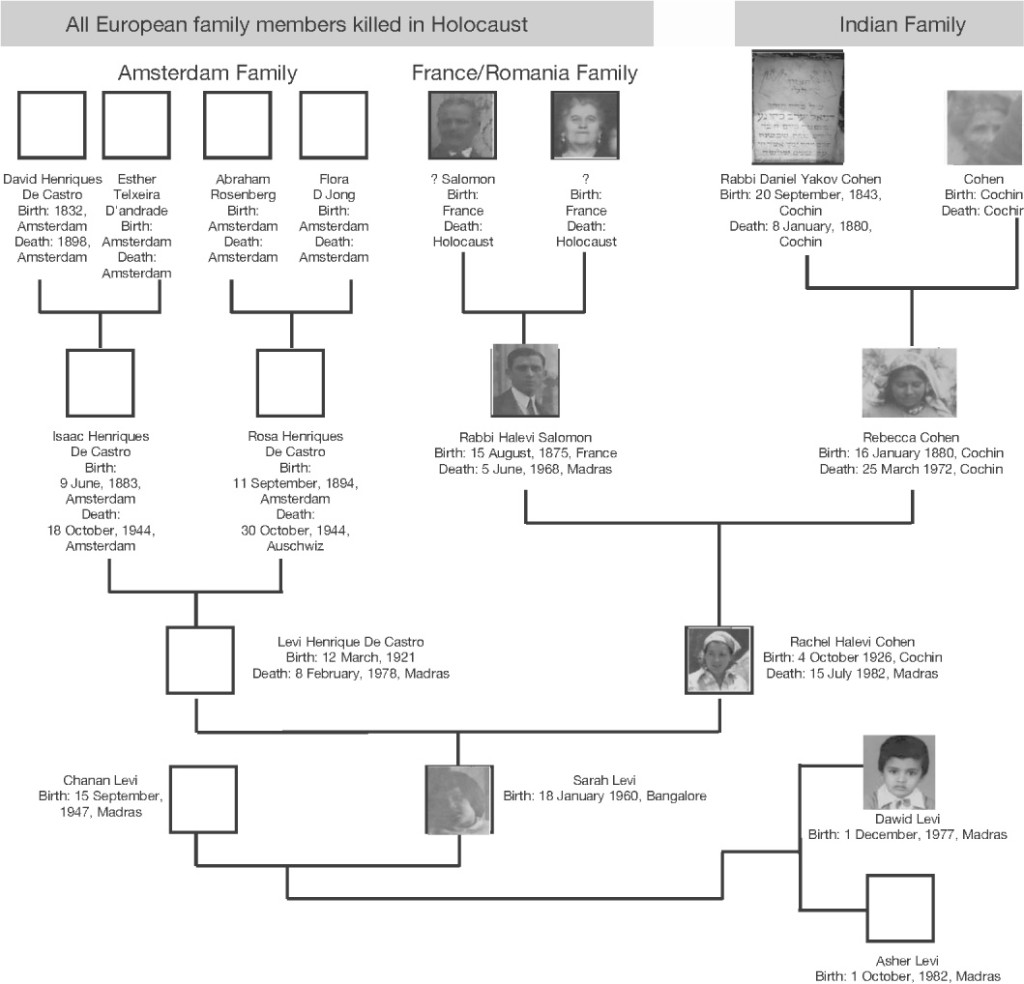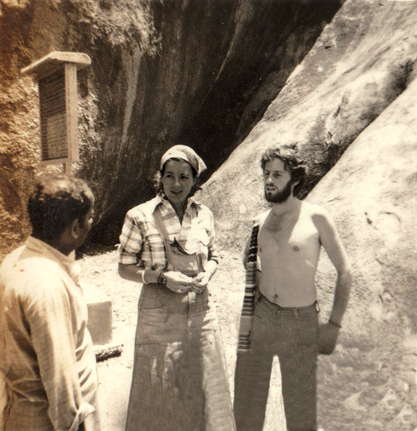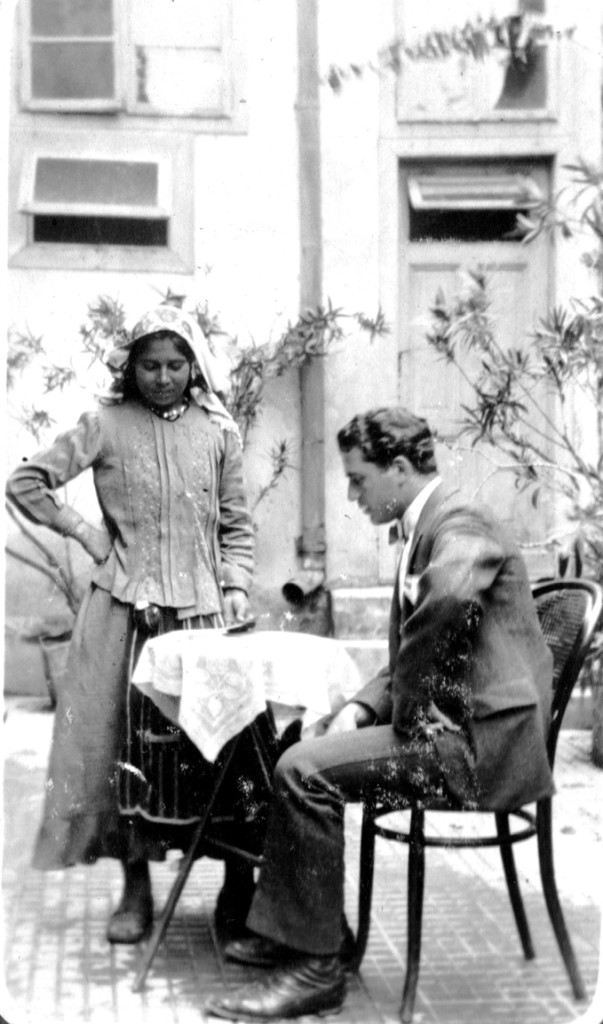Registered with the Registrar of Newspapers for India under R.N.I 53640/91
Vol. XXVII No. 20, February 1-15, 2018
The last family of Pardesi Jews in Madras
by N.S. Parthasarathy
 Wandering in search of the Promised Land, fleeing from mass persecution, and seeking refuge in widely dispersed parts of the world the story of the Jews forms an important chapter in the history of mankind. India has offered a home to them from ancient times. Judaism is said to be one of the first foreign religions to arrive in India. It arrived on the west coast. But, Madras too has given it its share of hospitality and Jews have lived here free of discrimination for centuries. Although they assimilated local traditions, without discarding their own ancient cultural moorings, their numbers have been dwindling post-Independence, because of emigration to Israel and other countries. This is the story of the last (Paradesi) foreign Jewish family of Madras.
Wandering in search of the Promised Land, fleeing from mass persecution, and seeking refuge in widely dispersed parts of the world the story of the Jews forms an important chapter in the history of mankind. India has offered a home to them from ancient times. Judaism is said to be one of the first foreign religions to arrive in India. It arrived on the west coast. But, Madras too has given it its share of hospitality and Jews have lived here free of discrimination for centuries. Although they assimilated local traditions, without discarding their own ancient cultural moorings, their numbers have been dwindling post-Independence, because of emigration to Israel and other countries. This is the story of the last (Paradesi) foreign Jewish family of Madras.
The Madras Jews were mainly Portuguese Jews. Following expulsion from Iberia in 1492 by the Alhambra Decree, a few families of Sephardic Jews made their way to Madras by way of England, Holland and Italy in the 17th Century. They established trade connections with their counterparts in many parts of Europe. Many of them conducted a flourishing business in rough Golconda diamonds, sending them abroad for refinement, cutting and polishing, and imported coral. Dealing in this business were the De Castro, Franco, Paiva and Porto families, among others.

Above: Levi Henriques De Castro and Rachel Halevi Cohen at Tiger Cave, Mahabalipuram and right: Salomon Halevi and Rebecca Cohen.
Jacques de Paiva, originally from Amsterdam, was an early arrival and a leader of the community. He established good relations with those in power and earned the eligibility to live within Fort St. George. Paiva died in 1687 after a visit to the mines he had acquired and was buried in the Jewish cemetery he had established in Peddanaickenpet, off what later became South Mint Street. In 1670, the Portuguese population in Madras was estimated to be around 3000 although this has no authentic substantiation. Before his death, Paiva established ‘The Colony of Jewish Traders of Madraspatam’ with Antonio do Porto, Pedro Pereira and Fernando Mendes Henriques. This encouraged more Portuguese Jews to settle in Madras.
Three Portuguese Jews were aldermen of India’s first Municipal body, the Madras Corporation established in 1688. Most of them lived in Coral Merchants Street in Muthialpet, the street taking its name from their business.
De Paiva built the second synagogue in Peddanaickenpet, next to the present Central railway station. Apparently, he got that land by grant from the British. That was the second synagogue in Madras, the first one being in Coral Merchants Street; the latter was a small one compared to the much bigger one on South Mint Street.
Though not descended from that lineage, there lives in Madras perhaps the last Jewish family with a Western lineage, Davvid Levi’s. Levi has diligently documented and made a large collection of material and artefacts to support the history of his family. “The next generation will be leaving India, I am the last generation. I would like to hand over all the documents, photos and Jewish items to the Tamil Nadu Government or some reliable public or private institution committed to preserving them, to tell a part of the story of the Madras Jews to posterity,” said Levi when I met him during one of his stop-overs in his Chennai home between his voyages with a merchant shipping company.

When I went to meet him, I expected to see a man speaking only English and Hebrew with pronounced signs of European lineage. It was a pleasant surprise to be greeted in chaste Tamil, with a distinct Malayalee accent, by a young man of coffee-coloured complexion and with a well-groomed goatee. Davvid Levi, 40 years of age, did his Master’s in Glasgow, Scotland, after schooling in Royapuram, Chennai.
Levi’s great-grandfather Salomon Halevi, a rabbi, came to Madras in the early 19th Century. There is little information on Rabbi Salomon’s past and when and where he came from. There were many Jewish families from Amsterdam, and it is possible that Salomon or his ancestors were also from Amsterdam. Levi has heard it said in his family that his great-grandmother, Rebecca Cohen, wife of Rabbi Salomon Halevi, used to stay inside the Fort, although she was a coloured person of Yemeni ancestry, probably by virtue of being the wife of Rabbi Salomon Halevi, a European.
Isaac Street was named after Levi’s other great-grandfather, Isaac Henriques de Castro. Isaac was a trader in diamonds, precious stones, and coral besides being a money-lender.
The place where the Madras Paradesi Synagogue and Cemetery existed was named as Isaac Street. Isaac Henriques De Castro and his wife Rosa Henriques De Castro were killed in Auschwiz in 1944.
Levi Henriques De Castro, the only son of Isaac, that is, Davvid’s grandfather, then just 23, escaped the holocaust as he was then travelling in the East. Levi De Castro had amassed a lot of property in Madras by his own effort. After World War II, he went to Israel to participate in its war with the Arabs in 1947. He tried to settle in Israel but, not liking the environment there, came back to India. Perhaps also because he had substantial stakes in India in the form of monies in the bank and property. He succeeded in re-establishing his businesses. His only relations were the Rabbi Salomon family into which he had married, and he started doing business with them, according to documents available with Davvid. He married Rachel Halevi, daughter of Rabbi Salomon Halevi, who was half European and half Yemini of blood. They first lived in Bangalore and later came back to Madras where he died in 1978. She died in 1982. They are buried in the Jewish burial ground, now on Lloyd’s Road. Their daughter was Sarah Levi, Davvid Levi’s mother.
Rachel, Levi’s grandmother, was a professor in Kerala University. They lived in Coral Merchant street in their own house which was sold subsequently. Levi de Castro was rich but gave everything to Israel to help its war effort. Thus, he lost everything. Davvid Levi’s mother was reduced to penury, forced to sell vegetables and “worked very hard to provide for us”.
Davvid Levi, his mother, his Yemeni wife, his two daughters, his brother, Asher Levi. Asher’s wife and daughter, married with one daughter, are the only Jews from this family in Madras – the last Madras Jews with European connections.


Hello sir
Can I meet any jewish family as I want to interview them for my college magazine
Hello sir some american want to meet u it possible please let me know I am auto driver from chennai
Hello sir some american want to meet u it possible please let me know I am auto driver from chennai my phone no is 9080802944 please fall me